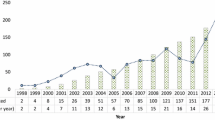Abstract
Currently, online forums have become one of the most popular collaborative tools on the Internet where people are free to express their opinions. Forums supply facilities for knowledge management in which, their members can share their knowledge with each other. In this regard, The main problem regarding to the knowledge sharing on forums is the extensive amount of data on them without any mechanism to determine their validity. So, for knowledge seekers, knowing the expertise level of each member in a specific context is important in order to find valid answers. In this research, a novel algorithm is proposed to determine people’s expertise level based on the context. AskMe forum is chosen for the evaluation process of the proposed method and its data has been processed in several stages. First of all, a special crawling program is developed to gather data from AskMe forum. Then, raw data is extracted, transformed, and loaded into a designed database using SQL server integration services. Afterwards, people’s expertise level for specified context is calculated by applying the proposed method on the processed data. Finally, evaluation tests are applied in order to calculate the accuracy of the proposed method and compare it with other methods.






Similar content being viewed by others
References
Constant D, Sproull L, Kiesler S (1996) The kindness of strangers: the usefulness of electronic weak ties for technical advice. Organ Sci 7(2):119–135. doi:10.1287/orsc.7.2.119
Wasko M, Faraj S, Teigland R (2004) Collective action and knowledge contribution in electronic networks of practice. J Assoc Inform Syst 5(11):494–513
Yimam-Seid D, Kobsa A (2003) Expert finding systems for organizations: problem and domain analysis and the DEMOIR approach. J Organ Comput Electron Commer 13:1–24. doi:10.1207/S15327744JOCE1301_1
Romney AK, Weller SC, Batchelder WH (1986) Culture as consensus: a theory of culture and informant accuracy. Am Anthropol 88(2):313–338. doi:10.1525/aa.1986.88.2.02a00020
Campbel CS, Maglio PP, Cozzi A, Dom B (2003) Expertise identification using email communications. In: The proceeding of the 12th International conference on information and knowledge management, New Orleans, LA, pp 528–531. doi:10.1145/956863.956965
Dom B, Eiron I, Cozzi A, Zhang Y (2003) Graph-based ranking algorithms for email expertise analysis. In: Proceedings of the 8th ACM SIGMOD workshop on Research issues in data mining and knowledge discovery, New York, NY, ACM Press, pp 42–48. doi:10.1145/882082.882093
Zhang J, Ackerman MS, Adamic L (2007) Expertise Networks in Online Communities: Structure and Algorithms. In: Proceedings of the International World Wide Web Conference Committee (IW3C2) ACM, pp 221–230. doi:10.1145/1242572.1242603
Zhang J, Ackerman MS, Adamic L, Nam KK (2007) QuME: A mechanism to support expertise finding in online help-seeking communities. In: Proceedings of the 20th Symposium on User Interface Software and Technology, Newport, RI, ACM, p 111–114. doi:10.1145/1294211.1294230
Adamic LA, Zhang J, Bakshy E, Ackerman MS (2008) Knowledge sharing and Yahoo Answers: Everyone knows something. In: Proceedings of the 17th International Conference on World Wide Web (WWW’08), New York: AC, p 665–674. doi:10.1145/1367497.1367587
Kardan A, Omidvar A, Farahmandnia F (2011) Expert Finding on Social Network with Link Analysis Approach. In: Proceedings of the 19th Iranian Conference on Electrical Engineering (ICEE), Tehran, Iran, p 1–6
Cross R, Rice RE, Parker A (2001) Information seeking in social context: structural influences and receipt of information benefits. IEEE Trans Syst Man Cybern Part C Appl Rev 31(4):438–448. doi:10.1109/5326.983927
Kameda T, Ohtsubo Y, Takezawa M (1997) Centrality in sociocognitive networks and social influence: an illustration in a group decision-making context. J Pers Soc Psychol 73(2):296–309. doi:10.1037/0022-3514.73.2.296
Ibarra H (1993) Network centrality, power, and innovation involvement: determinants of technical and administrative roles. Acad Manag J 36(3):471–501. doi:10.2307/256589
Burt RS (1982) Toward a structural theory of action. Academic Press, New York, NY
Balog K, Azzopardi L, Rijke M (2006) Formal models for expert finding in enterprise corpora. In: Proceedings of the 29th annual international ACM SIGIR conference on Research and development in information retrieval, August 06-11, Seattle, Washington, USA, p 43–50. doi:10.1145/1148170.1148181
Kardan A, Garakani M, Bahrani B (2010) A method to automatically construct a user knowledge model in a forum environment. In: Proceedings of the 33rd International ACM SIGIR conference on Research and development in information retrieval (SIGIR), p 717–718. doi:10.1145/1835449.1835581
Abel F, Bittencourt I, Costa E, Henze N, Krause D, Vassileva J (2010) Recommendations in online discussion forums for e-learning systems. Trans Learn Technol 3(2):165–176. doi:10.1109/TLT.2009.40
Coastro-Herrera C, Cleland-Huang J, Mobasher B (2009) A recommender system for dynamically evolving online forums. In: Proceedings of the 3th Conference ACM Recommender Systems, p 213–216. doi:10.1145/1639714.1639751
Zˇiberna A, Vehovar V (2009) Using social network to predict the behavior of active members of online communities. In: Proceedings of the International Conference on Advances in Social Network Analysis and Mining, p 119–124. doi:10.1109/ASONAM.2009.24
Balog K, Rijke M (2007) Finding similar experts. In: Proceedings of the 30th annual international ACM SIGIR conference on Research and development in information retrieval, Amsterdam, The Netherlands, p 23–27. doi:10.1145/1277741.1277926
Balog K, Rijke M (2008) Non-Local Evidence for Expert Finding. In Proceedings of the 17th ACM conference on Conference on information and knowledge management, Napa Valley, California, USA, pp 489–498. doi:10.1145/1458082.1458148
Liu X, Croft WB, Koll M (2005) Finding experts in community-based question-answering services. In: Proceedings of the 14th ACM international conference on information and knowledge management, Bremen, Germany, p 315–316. doi:10.1145/1099554.1099644
Ackerman MS, Malone TW (1990) Answer Garden: a tool for growing organizational memory. In: Proceedings of the ACM SIGOIS and IEEE CS TCOA Conference on Office Information Systems, Cambridge, MA, p 31–39. doi:10.1145/91474.91485
Ackerman MS, McDonald DW (1996) Answer Garden 2: merging organizational memory with collaborative help. In: Proceedings of the 1996 ACM Conference on Computer Supported Cooperative Work, Boston, MA, p 97–105. doi:10.1145/240080.240203
Streeter L, Lochbaum K (1998) An expert/expert-locating system based on automatic representation of semantic structure. In: Proceedings of the Fourth Conference on Artificial Intelligence Applications, San Diego, CA, pp. 345–350. doi:10.1109/CAIA.1988.196129
Krulwich B, Burkey C (1996) The contactfinder agent: answering bulletin board questions with referrals. In: Proceedings of the 13th National Conference on Artificial Intelligence, Portland, OR, p 10–15
Heeringa W (2004) Measuring dialect pronunciation differences using Levenshtein distance, Ph.D. thesis, Rijksuniversiteit Groningen
Schickel-Zuber V, Faltings B (2007) OSS: a semantic similarity function based on hierarchical ontologies. In: Proceedings of the 12th International Joint Conference on Artificial Intelligence, p 551–556
Resnik P (1995) Using information content to evaluate semantic similarity. In: Proceedings of the IJCAI05, p 448–453
Chodorow M, Leacock C (1997) Combining local context and WordNet similarity for word sense identification. In Fellbaum, pp 265–283
Lin D (1998) An information-theoretic definition of similarity. In: Proceedings of the 15th International Conference on Machine Learning
Jiang J, Conrath DW (1997) Semantic Similarity based on corpus and lexical taxonomy. In: Proceedings of 10th International Conference COLING
Morid MA, Omidvar A, Shahriari HR (2011) An Enhanced Method for Computation of Similarity between the Contexts in Trust Evaluation Using Weighted Ontology. In: Proceedings of the 10th IEEE International Conference on Trust, Security and Privacy in Computing and Communications, p 721–725. doi:10.1109/TrustCom.2011.93
Leea S, Huh S, McNiel RD (2008) Automatic generation of concept hierarchies using WordNet. Expert Syst Appl 35(3):132–1144. doi:10.1016/j.eswa.2007.08.042
Silva S, Goel L, Mousavidin E (2009) Exploring the dynamics of blog communities: the case of MetaFilter. Inf Syst J 19:55–81. doi:10.1111/j.1365-2575.2008.00304.x
Page L, Brin S, Motwani R, Winograd T (1998) The PageRank citation ranking: Bringing order to the web. Technical Report, Stanford Digital Library Technologies Project
Porter M (2006) an algorithm for suffix stripping. Program: Electron Lib Inform Syst 40(3):211–218. doi:10.1108/00330330610681286
Voorhees EM (1999) TREC-8 Question Answering Track Report. In: Proceedings of the 8th Text Retrieval Conference. p 77–82
Author information
Authors and Affiliations
Corresponding author
Rights and permissions
About this article
Cite this article
Omidvar, A., Garakani, M. & Safarpour, H.R. Context based user ranking in forums for expert finding using WordNet dictionary and social network analysis. Inf Technol Manag 15, 51–63 (2014). https://doi.org/10.1007/s10799-013-0173-x
Published:
Issue Date:
DOI: https://doi.org/10.1007/s10799-013-0173-x




